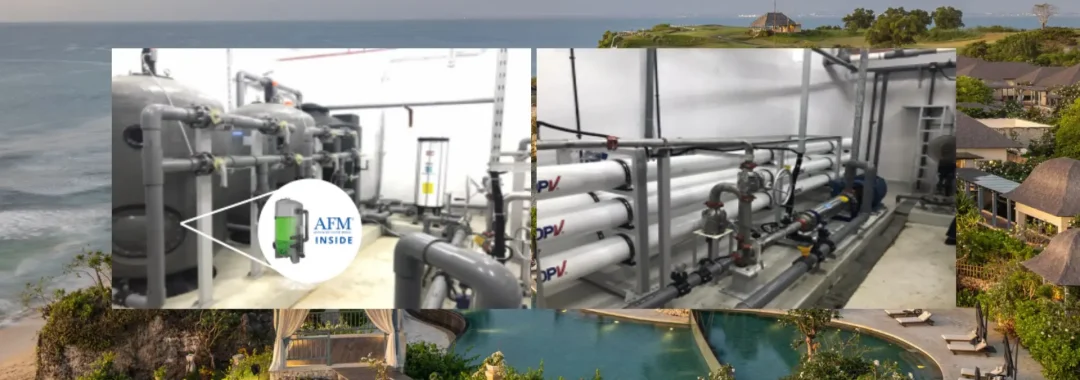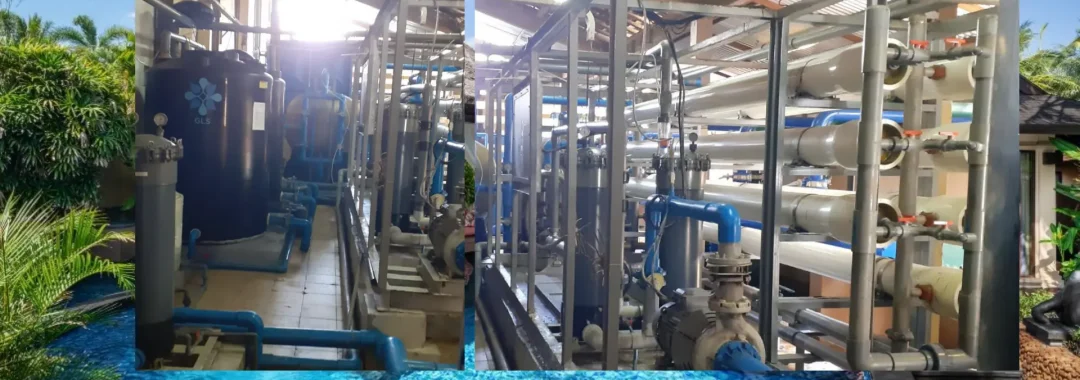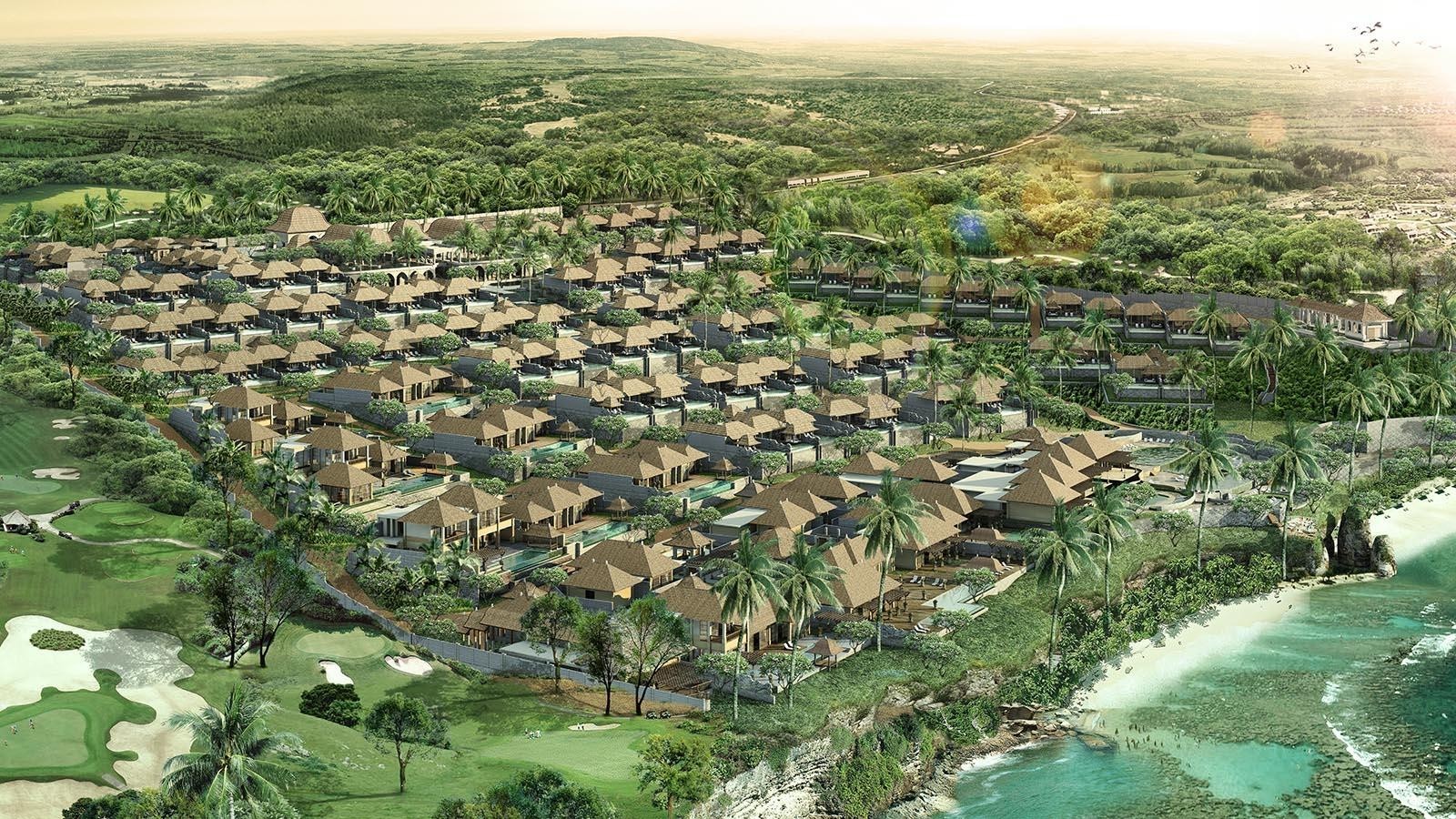Introduction
Luxury coastal resorts must manage water supply carefully. At Jumeirah Bali, the resort installed a desalination plant combining Activated Filter Media (AFM) and Sea Water Reverse Osmosis (SWRO) to ensure sustainable, high-quality water for its operations. According to the group, it features one of the region’s most advanced desalination solutions to avoid stressing Bali’s fragile freshwater resources (Jumeirah).
Challenges Faced by Jumeirah Bali Desalination Plant
Resort-scale seawater desalination comes with several obstacles:
- High turbidity and suspended solids in seawater intake
- Need for robust pre-treatment to protect SWRO membranes
- Maintaining cost efficiency (OPEX, CAPEX) for long-term operations
- Environmental considerations like brine discharge and energy demand (ScienceDirect)
Technical Solution: AFM Filtration and SWRO in Industrial Desalination Systems
AFM Filtration in Jumeirah Bali Desalination Plant
- Seawater intake filtered through AFM Grades 1–3.
- AFM effectively reduced colloidal matter, suspended solids, and organic load.
- Research shows AFM can outperform sand filters in reducing turbidity and SDI (ResearchGate).
👉 Learn more about our Water Treatment Supply solutions.
SWRO System for Seawater Desalination
- Post AFM, seawater processed through SWRO membranes.
- Reduced turbidity and lower SDI safeguarded RO performance.
- External studies note that SWRO is effective but requires careful energy optimization and brine management (Frontiers in Water).
👉 See our Reverse Osmosis Membrane product page.
Performance Results of Jumeirah Bali Industrial Desalination System
The desalination plant achieved:
- Turbidity: reduced from 3–4 NTU → 0.2 NTU
- SDI: lowered from 5–6 → <3
- Suspended solids: reduced from 10–12 mg/L → <2 mg/L
- Capacity: 400 CMD (2021) and 300 CMD (2023)
These results highlight how AFM filtration + SWRO desalination produced stable, cost-efficient operations at Jumeirah Bali.
Sustainability and Benefits of Seawater Desalination at Jumeirah Bali
- Long-term OPEX and CAPEX savings
- Stable performance of industrial desalination systems
- Reduction in freshwater dependency in Pecatu, Bali
- Alignment with global resort sustainability standards (Destinasian)
👉 Explore our expertise in Seawater Treatment and Desalination Technologies.
Conclusion: Jumeirah Bali Desalination Plant as a Model for Resorts
The Jumeirah Bali Desalination Plant proves how industrial desalination systems combining AFM pre-filtration and SWRO technology can ensure clean, reliable, and sustainable water supply for luxury hospitality. By addressing turbidity, SDI, and suspended solids, this project demonstrates best practices for future resort-scale desalination projects in Southeast Asia.
❓ FAQ About Jumeirah Bali Desalination Plant
1. What is the Jumeirah Bali Desalination Plant?
It is a seawater treatment facility at Jumeirah Bali that uses Activated Filter Media (AFM) and Sea Water Reverse Osmosis (SWRO) to produce clean, sustainable water for resort operations.
2. Why does Jumeirah Bali need a desalination plant?
The resort is located in Pecatu, Bali, where freshwater resources are limited. Desalination reduces dependency on local water supplies and ensures sustainability.
3. How does AFM improve desalination at Jumeirah Bali?
AFM filtration removes turbidity, colloids, and suspended solids, lowering the SDI index. This extends the lifespan of SWRO membranes and reduces operational costs.
4. What are the results of the desalination system?
The system reduced turbidity from 3–4 NTU to 0.2 NTU, suspended solids from 10–12 mg/L to <2 mg/L, and stabilized SDI below 3.
5. Is seawater desalination sustainable for resorts?
Yes, when paired with technologies like AFM and energy-optimized SWRO, desalination provides resorts with reliable water while reducing environmental impact.


